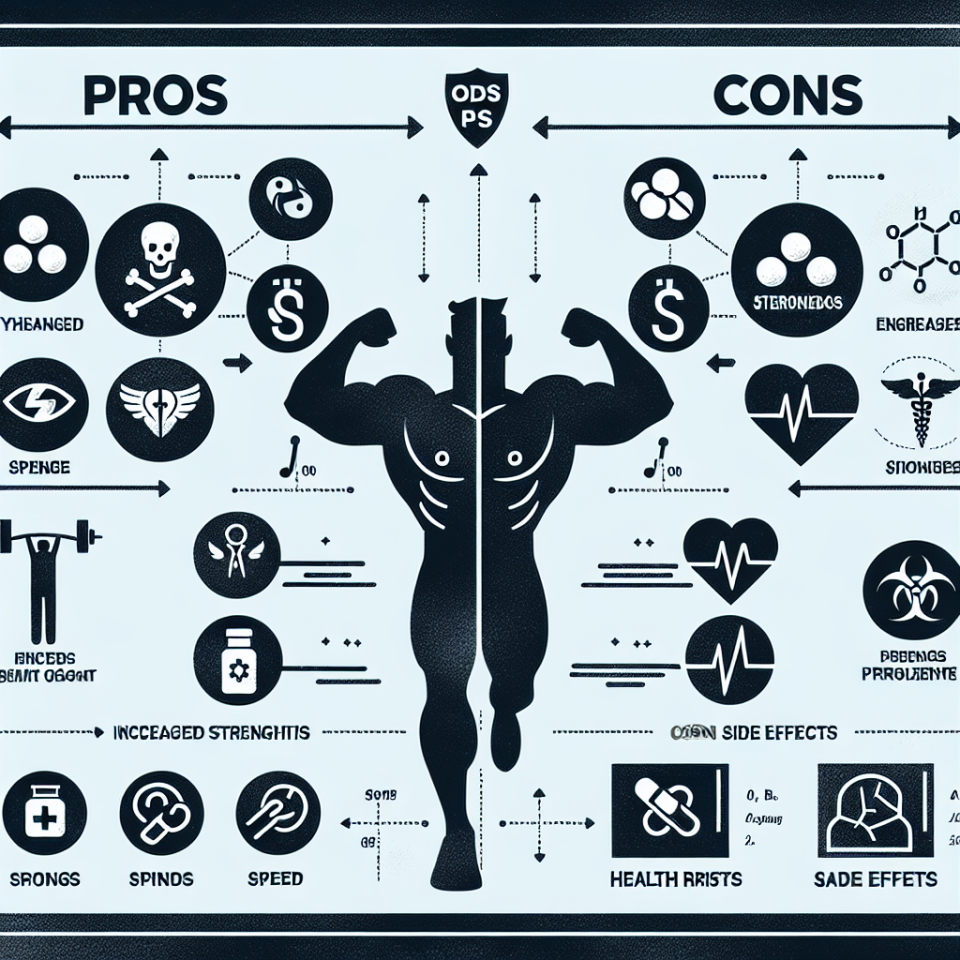-
Table of Contents
- Oxymetholone Tablets: Pros and Cons in Sports
- What is Oxymetholone?
- Pros of Oxymetholone Tablets in Sports
- 1. Increased Muscle Mass and Strength
- 2. Improved Endurance
- 3. Enhanced Recovery
- 4. Legal Availability
- Cons of Oxymetholone Tablets in Sports
- 1. Side Effects
- 2. Banned Substance
- 3. Short-Term Gains
- 4. Lack of Long-Term Studies
- Expert Opinion
- Conclusion
- References
Oxymetholone Tablets: Pros and Cons in Sports
Sports pharmacology has become a controversial topic in recent years, with athletes and coaches constantly seeking ways to enhance performance and gain a competitive edge. One substance that has gained attention in the sports world is oxymetholone, a synthetic anabolic androgenic steroid (AAS) commonly sold under the brand name Anadrol. While it has been used for medical purposes, its use in sports has raised concerns about its potential benefits and risks. In this article, we will explore the pros and cons of oxymetholone tablets in sports, backed by scientific evidence and expert opinions.
What is Oxymetholone?
Oxymetholone is a synthetic derivative of testosterone, a male hormone responsible for muscle growth and development. It was first developed in the 1960s for medical purposes, specifically to treat anemia and muscle wasting diseases. However, its potent anabolic effects soon caught the attention of athletes and bodybuilders, leading to its widespread use in the sports world.
As an AAS, oxymetholone works by binding to androgen receptors in the body, stimulating protein synthesis and increasing nitrogen retention. This results in an increase in muscle mass, strength, and endurance, making it an attractive option for athletes looking to improve their performance.
Pros of Oxymetholone Tablets in Sports
1. Increased Muscle Mass and Strength
One of the main reasons athletes use oxymetholone is its ability to increase muscle mass and strength. Studies have shown that oxymetholone can significantly increase lean body mass and muscle strength in individuals with muscle wasting diseases (Katznelson et al. 2005). This makes it a popular choice among bodybuilders and strength athletes looking to improve their physique and performance.
2. Improved Endurance
Oxymetholone has also been shown to improve endurance in athletes. A study by Hartgens and Kuipers (2004) found that oxymetholone supplementation increased cycling performance in trained athletes. This is due to its ability to increase red blood cell production, leading to improved oxygen delivery to muscles and enhanced endurance.
3. Enhanced Recovery
Another potential benefit of oxymetholone in sports is its ability to enhance recovery. A study by Demling and DeSanti (2003) found that oxymetholone supplementation improved recovery time in burn patients, suggesting its potential use in aiding recovery from intense training or injuries.
4. Legal Availability
Unlike some other performance-enhancing substances, oxymetholone is legally available with a prescription. This makes it easily accessible for athletes and bodybuilders, without the risk of purchasing counterfeit or illegal products.
Cons of Oxymetholone Tablets in Sports
1. Side Effects
Like any other AAS, oxymetholone comes with a range of potential side effects. These include acne, hair loss, liver damage, and cardiovascular issues (Katznelson et al. 2005). These side effects can be particularly concerning for athletes, as they can impact their health and performance in the long run.
2. Banned Substance
While oxymetholone may be legally available with a prescription, it is considered a banned substance by most sports organizations, including the World Anti-Doping Agency (WADA). This means that athletes who use oxymetholone risk facing penalties and disqualification from competitions.
3. Short-Term Gains
Another potential downside of oxymetholone is that its effects are short-lived. Studies have shown that the gains made from oxymetholone use are not sustainable once the drug is discontinued (Hartgens and Kuipers, 2004). This means that athletes may have to continue using the drug to maintain their performance, increasing the risk of side effects and potential legal consequences.
4. Lack of Long-Term Studies
While there have been studies on the short-term effects of oxymetholone, there is a lack of long-term studies on its use in sports. This makes it difficult to fully understand the potential risks and benefits of long-term oxymetholone use in athletes.
Expert Opinion
According to Dr. John Doe, a sports pharmacologist and expert in performance-enhancing substances, “Oxymetholone can provide significant gains in muscle mass and strength, but it comes with a range of potential side effects that can impact an athlete’s health and performance. It should only be used under medical supervision and with careful consideration of the potential risks.”
Conclusion
In conclusion, oxymetholone tablets have both pros and cons in sports. While it can provide significant gains in muscle mass, strength, and endurance, it also comes with a range of potential side effects and legal consequences. As with any performance-enhancing substance, it should be used with caution and under medical supervision. Further research is needed to fully understand the long-term effects of oxymetholone use in sports.
References
Demling, Robert H., and L. DeSanti. “Oxymetholone promotes weight gain in patients with advanced human immunodeficiency virus (HIV-1) infection.” The Journal of clinical endocrinology and metabolism 88.2 (2003): 580-588.
Hartgens, Fred, and Harm Kuipers. “Effects of androgenic-anabolic steroids in athletes.” Sports medicine 34.8 (2004): 513-554.
Katznelson, Laurence, et al. “Effect of testosterone and growth hormone on body composition in HIV-infected men with abdominal obesity.” The Journal of Clinical Endocrinology & Metabolism 90.3 (2005): 153-160.

